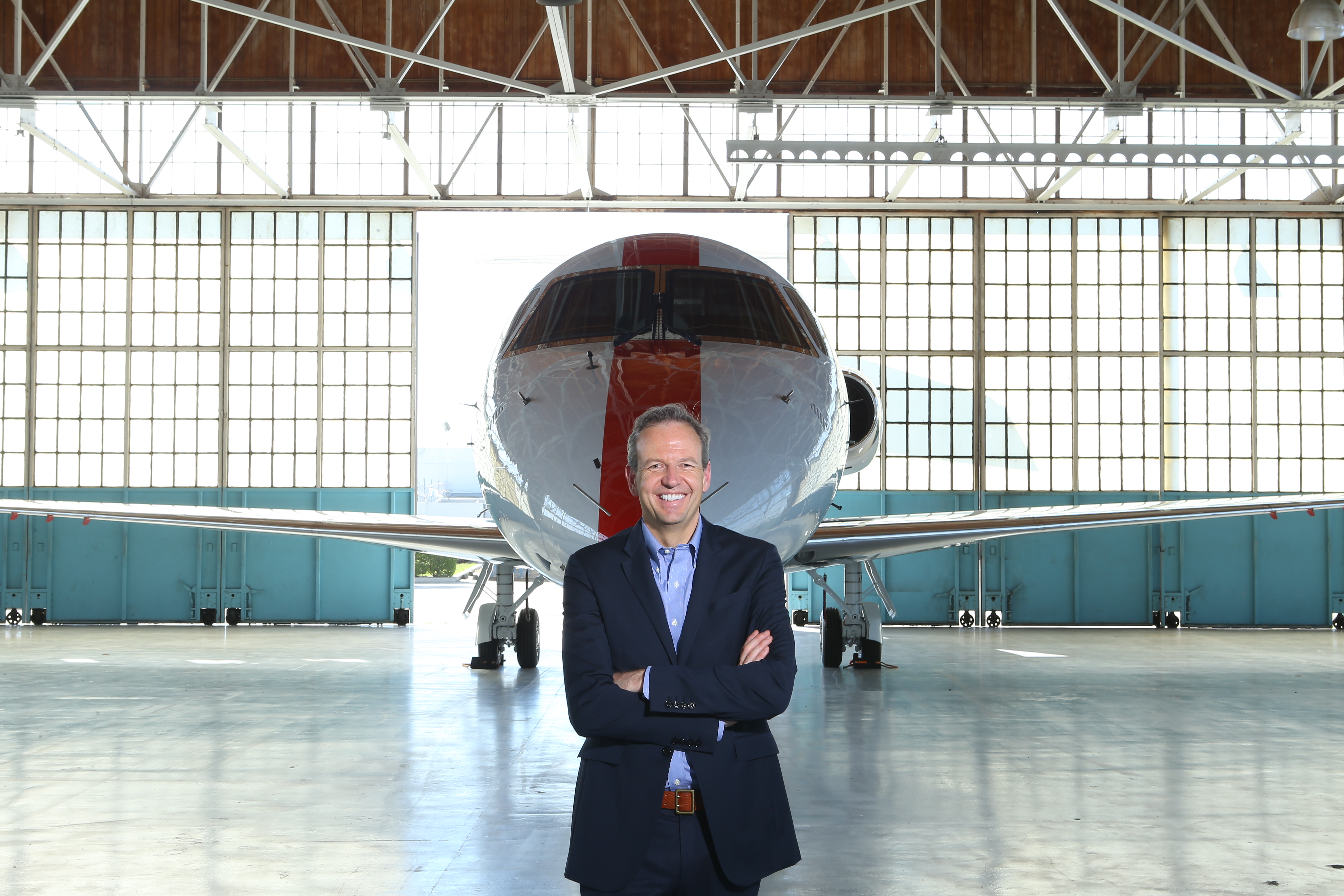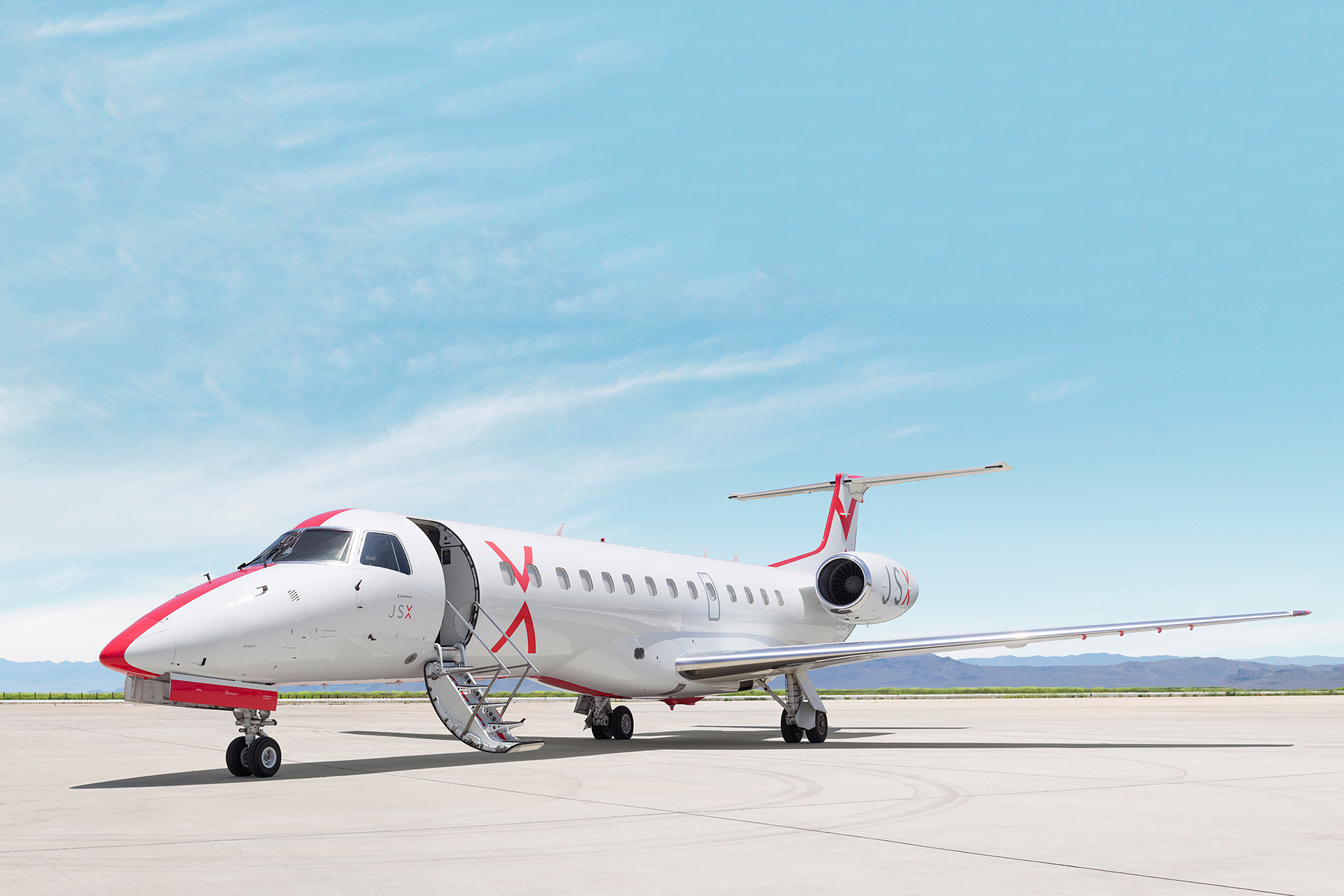You aren’t allowed to shout “fire” in a crowded theater when there is no fire, but that is precisely what flight operator JSX CEO Alex Wilcox says is happening at Dallas Love Field Airport, where major airlines and associated unions are calling for stricter regulations on operators like JSX.
The FAA’s so-called “public charter loophole” allows operators like JSX, which offers 41 point-to-point flights around the country, to avoid much of the hassle of modern air travel. Patrons park their car in a different area 20 minutes before the flight, walk up, and board, allowing customers to avoid long TSA and ticketing lines for flights of 30 people or less.
A JSX flight is usually slightly more expensive than a comparable major airline flight. A Dallas to Boulder, Colorado flight in November ranged between $349 and $729 in a recent search. But the improved experience has led to significant growth since the company moved from California to Texas around five years ago. Airline Geeks reported that the company had grown its passenger count by 118 percent between 2019 and 2023. Last year was the company’s busiest year, with 30,000 revenue flights flown, but Wilcox says that number is expected to grow by 65 percent by the end of 2023. JSX expects to record $500 million in revenue in 2023, and Wilcox predicted the company would cross $1 billion in the next five years.
But all that growth is now under threat if Southwest Airlines, American Airlines, and pilots unions get their way. Over the summer, the Dallas Morning News reported that the major airlines and pilots unions were requesting a review of the rules that governed these carriers.
The two airlines submitted comments to the FAA requesting that operators like JSX abide by the same safety standards as the major airlines, closing the public charter loophole. “There is no longer any justification for maintaining two sets of standards for scheduled operations in airplanes with a passenger-seating configuration of 10 or more seats. When a passenger pays for a ticket on an FAA-certificated commuter operation, that passenger must be assured of the highest possible level of safety,” Southwest Airlines wrote to the FAA.
The public charter (Part 135 carriers in FAA terms) industry is growing rapidly and needs more regulation, Southwest argues. Department of Transportation data found public charter flights with 30 or fewer seats increased 9,000 percent between 2008 and 2022, from 2,078 flights 15 years ago to 189,075 last year. But the growth hasn’t led to increased safety concerns and could eliminate jobs, counters a coalition of aviation groups that include the National Business Aviation Association and the General Aviation Manufacturers Association.
“For more than 45 years, Part 135 carriers have operated aircraft safely and reliably on behalf of public charter operators under DOT Part 380, unlocking substantial public benefits and providing valuable air transportation to many communities that otherwise would not have commercial air service. Changing regulations could eliminate well-paying jobs at all levels of the industry while hurting economic competition, carbon emissions reduction, emerging technologies, aviation innovation, and service to small communities.”
The airlines and a coalition of pilots unions, including the Air Line Pilots Association International, argue that these flights are booked the same way as major carrier tickets and are indistinguishable from them, with scheduled flights purchased on internet platforms, and should be regulated like other major carriers.
“We applaud the FAA for its intent to close the loophole currently allowing certain scheduled passenger carriers, like JSX, to evade the safety and security requirements of most airlines,” a spokesman from American Airlines wrote. “Any airline business model built to evade traditional security measures is concerning, so it’s not surprising that in recent weeks we’ve seen aviation and security experts speaking out on the dangers of these security loopholes… it would be wise to reevaluate this misuse of the exception for public charter operators under current FAA regulations.”
There is just one major problem, says Alex Wilcox. The protest didn’t originate with any safety issues, and the FAA couldn’t identify a safety gap in its review of these operators. “JSX has a flawless safety record and far exceeds applicable safety, security, and regulatory standards. By any measure, JSX has a better safety, security, and operating record than the other airlines,” Wilcox wrote in an email to JSX customers.

“These operators have zero security issues, zero safety incidents, and zero fatalities for decades,” Wilcox says. “It is actuarially safer than major airlines.”
Lobbying the FAA to consider changing regulations wastes the regulator’s time and a bold attempt to regulate JSX and others out of business by eliminating the company’s competitive advantages. “There is no beating around the bush. This is yelling fire in a crowded theater with no fire. There is no data to support the complaint,” Wilcox says.
Earlier this month, JSX took to the public to respond to the FAA’s inquiry about safety concerns, emailing its customers asking them to weigh in on the new regulations, which seems to have worked. The company created a site to promote its perspective on the issue, with letters of support from other operators and organizations. The FAA has received over 74,000 comments, with 230,000 additional comments made to elected officials who can weigh in on FAA regulations. The review prompted the most ever comments on a Department of Transportation or FAA proposed rule, and 99.8 percent of the public comments oppose the FAA’s new regulations on the public charter carriers.
Wilcox says the new regulations would eliminate JSX’s ability to function and mean that the public wouldn’t be able to access the majority of airports in the country. There are 480 airports with TSA checkpoints nationwide, but more than 5,000 where operators like JSX can fly. Eliminating these operators means that only private jet flyers can access these airports. “You wouldn’t be allowed to fly to these airports unless you have your own airplane,” Wilcox says. “Tax dollars are being used to support thousands of airports that are only accessed by the super-rich.”
Despite what JSX calls a David vs. Goliath battle, Wilcox is confident his side will prevail. He was a founding executive at JetBlue Airways, started his career with Virgin Atlantic, and knows the industry well. He says if the regulators rely on data, JSX and its peers should be able to preserve their business model. “It’s discouraging to see the collusion between Big Labor and Big Airlines to box out all new entrants,” he says. “These gangs of bullies have opened my eyes to how the sausage is made in D.C. I am discouraged by the current state of affairs, but optimistic that things will fall in our favor.”
Author







